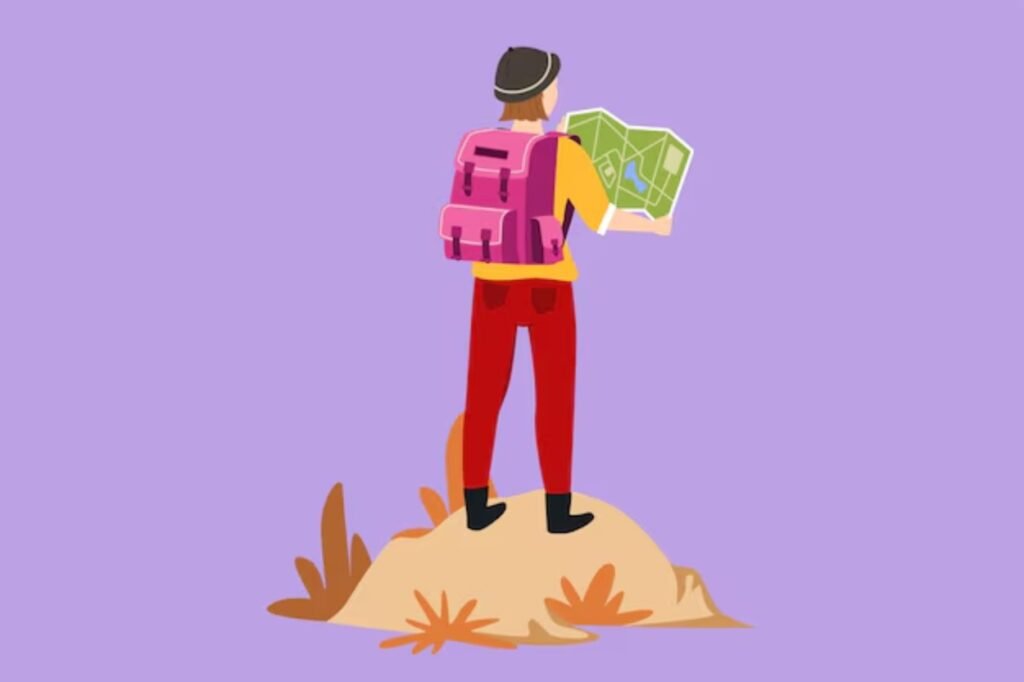A water bottle label or carbon offset tick doesn’t define responsible travel. Being responsible begins with travel planning and continues through to unpacking at home; it is a way of life. It urges you to notice the mechanisms that make your travel possible—real people maintaining roads, ranger teams patrolling distant pathways, family-run shops that keep villages alive, and enormous but fragile habitats. After passing through, is the place better, the same, or worse for your presence?
Move First: Travelling
Transport dominates your footprint. Avoid rush-hour traffic by traveling during the off-season and bringing only the essentials. Motorhome hire Scotland firms can be a good option for Highlands and islands vacations if combined with restraint, unhurried routes, proper waste disposal, and overnighting in areas where amenities and villages welcome guests. Responsibility starts with the unglamorous, realistic tasks that protect landscapes and win residents.
Know the Rules Before Arriving
Respect and self-preservation require mastering regional rules. Cross-border access laws, hyper-local parking etiquette, and seasonal wildlife sensitivities alter. Read codes of conduct, verify fire-risk levels, and know where dogs must be leashed to avoid injury. Courtesy at crossings, closing gates, and keeping farm tracks clear during lambing aren’t frills; they support working landscapes and guest access. Ask a local when unsure. Good questions show care.
Spend Like a Guest, Not a Viewer
Spending matters as much as driving. Choose independent cafés over generic chains, buy from local artisans, and stay in locally owned accommodations to keep money flowing in winter and summer. Pay entrance fees, tip fairly, and book sensitive guides without complaint. Being guests rather than watchers makes tourism exchange, not extraction.
Walk Lightly in the Wild and Workplaces
Paths, dunes, peatlands, and machair meadows appear resilient until a sudden downpour leaves a season-long scar or repetitive scuffs cause years of erosion. Follow indicated pathways, remove all trash, and treat swimming holes, cliff edges, and beaches as public spaces. Patience is stewardship in cluttered views.
Photograph with Permission and Purpose
Pictures have effects. Geotagging a little cove might overwhelm it, and publishing photographs of people or private property without permission can damage confidence. Share locales deliberately, obscure identifying details where necessary, and prioritize stories that demonstrate a place’s nuance over its backdrop. Responsible explorers should consider the ripple effects before clicking “share”.
Community Safety Should Be Valued
Prepared travellers reduce service strains. Verify the weather forecast, have a small first-aid kit, and leave a route plan with someone who will notice you if you’re late. Follow mountain-rescue instructions and sea forecasts, and turn back when conditions change. The purpose of prudence is to support volunteers and experts who would otherwise have to correct mistakes.
Give Back, Even a Little
Contribution need not be significant. Donate to the lifeboat station, clean a beach for an hour, or attend the community hall’s benefit ceilidh. Thank land managers for well-kept trails. Review responsibly and highlight sustainable behaviour to help others make informed choices. Leave kindness, not trash.
The daily actions of thousands of travellers add up. Your selections show what you care about, which affects which businesses and practices make it through the off-season. That quiet vote makes locations worth revisiting in the long run.
Bring the Lesson Home
Responsible exploration goes beyond county lines. Traveling behaviors, such as reducing waste, promoting independence, and walking, can also be applied to daily life. Travel is effective if it expands your circle of care. Being a responsible explorer becomes a habit: being vigilant, generous, and mindful of the shared paths you tread.
